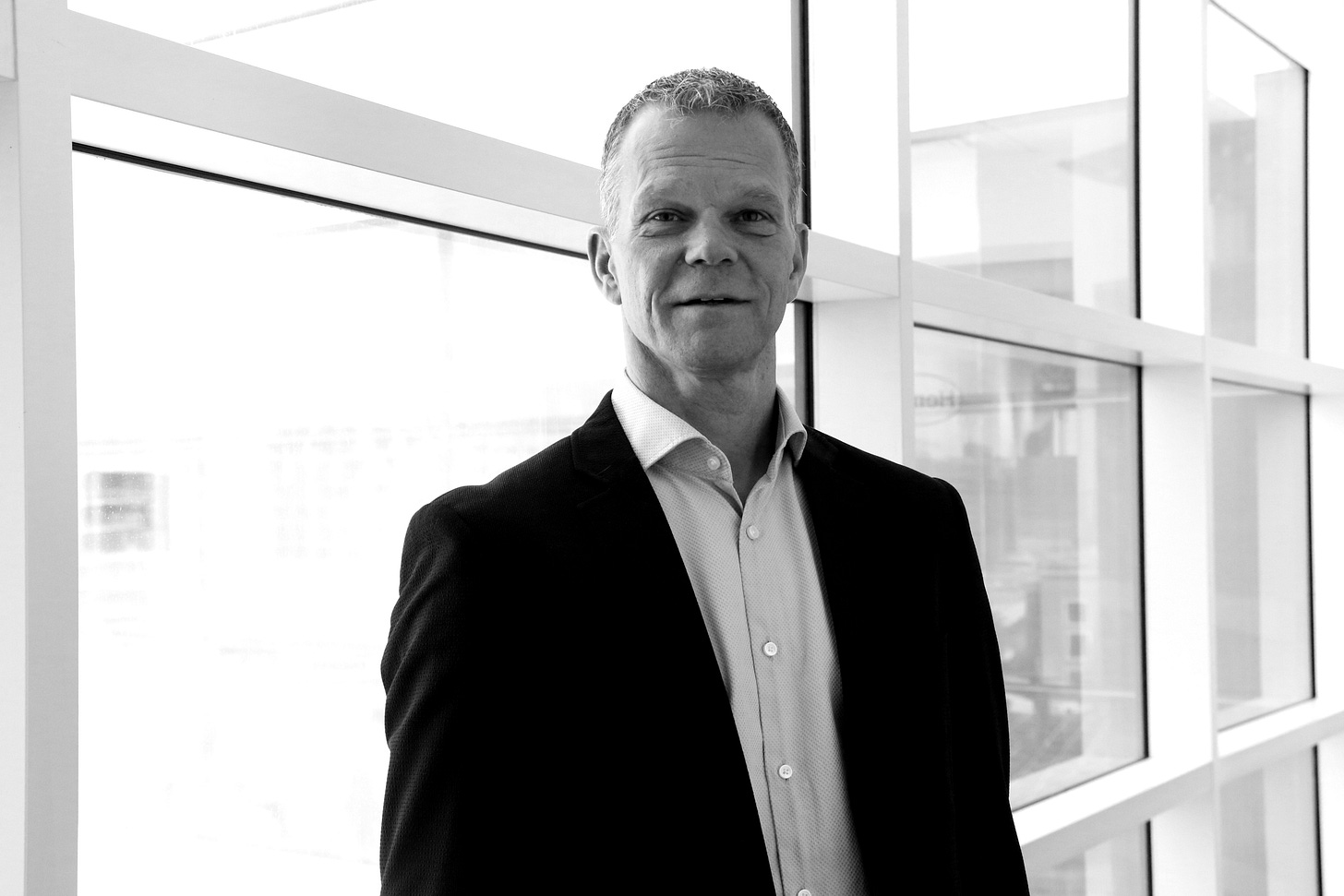Leading with Purpose
Ferry Bakker, Corporate VP of Supply Chain at Henkel Consumer Brands, speaks about Resilience, Technology, and Regional Complexity
Ferry Bakker, Corporate Vice President, Supply Chain High Growth Region at Henkel Consumer Brands, brings a rare mix of global experience, cross-functional perspective, and a passion for transformation. From his early days at Mars and P&G to his current role overseeing complex operations across the Middle East, Africa, Central Asia, ANZ, and Latin America, Ferry leads with a philosophy grounded in empowerment, adaptability, and doing what’s right.
This conversation reveals how he’s navigating constant change, learning and exploring AI solutions, and building a truly sustainable and human-centered supply chain.
How did you get into your current role? Maybe quickly take us through your background and career in just a few lines.
I joined Henkel in 2015 when the Global Supply Chain organization was being set up in Amsterdam. I started in the Laundry & Home Care division, leading global planning and logistics, before moving to Dubai to head up the supply chain for Henkel Consumer Brands across high-growth regions.
Earlier, I held roles at Mars, P&G, and Kraft Heinz in Belgium, Switzerland, and the U.S. I also spent three years in commercial and sales roles to broaden my business lens.
What is your current role and responsibilities?
I lead end-to-end supply chain operations across the High Growth Region from our base in Dubai. That includes planning, manufacturing, warehousing, distribution, and customer service. My region covers the Middle East, Africa, Central Asia, Australia and New Zealand, and Latin America—each incredibly diverse and complex in its own way.
How does a typical workday look like for you? Any morning routine?
I’m a fan of routines. My day starts at 6:30 with my daughters over breakfast, followed by a gym or swim session. Work involves constant collaboration across teams and regions, balancing urgent needs with long-term transformation. With so many time zones, managing the calendar is a skill in itself.
What are some of the lessons you learned from the pandemic?
Our adaptability surprised me. We went from office-based to fully virtual overnight, and learned how effective digital collaboration could be. But it also reminded us how valuable human connection is. The pandemic made us more aware of each other’s full lives, not just our roles on screen.
What are the biggest challenges you face day-to-day? How do you address them?
This region is in constant motion—regulations shift overnight, and infrastructure ranges from high-tech to basic. Flexibility is key. I spend time listening to local teams to avoid one-size-fits-all decisions. Clear priorities, empowered teams, and trust help us act fast when conditions change.
What tech or tools are you most excited about right now?
We will be upgrading from SAP APO to a next-gen Integrated Business Planning platform, leveraging AI and machine learning capabilities. It’s helping us model scenarios and accelerate decision-making. In our factories, we’re rolling out Industry 4.0 with sensors and automation. Personally, I use ChatGPT and Copilot for learning and efficiency—great tools to stay current.
How do you prioritize sustainability and ethics in your operations?
Sustainability is built into Henkel’s DNA. We aim for carbon-neutral production globally by 2030—our Egypt site is already there. We’ve eliminated production waste and are focused on circular water use. One example I’m proud of is our Turkey project: solar-powered warehousing, electric trailers, and rail transport. It reduced emissions and improved resilience.
How do you stay updated with trends and technologies in supply chain?
I stay curious. The best insights often come from peers, startups, or even mentees. I try new tools myself and ask lots of questions. Industry reports are useful, but nothing beats hands-on experimentation and real conversations.
What skills are most important for supply chain leaders today?
Mindset comes first—curiosity, resilience, and continuous learning. You need to handle uncertainty, lead through change, and build adaptable teams. Soft skills matter too: empathy, communication, and a passion for developing people. And of course, you need to love solving problems.
What trends do you see shaping the profession in the next few years?
AI and automation will take over transactional work, freeing up humans for strategic thinking. ESG will also take center stage—not just compliance, but innovation. We’ve already cut CO₂ emissions per ton by 64% since 2017 and hit 25% recycled plastic in packaging. The future is smart, sustainable, and fast.
What advice would you give to someone starting out in supply chain?
Move fast. Stay open. Be resilient. If you enjoy complexity and want to make a real impact, this field is for you. There’s never a dull day. And if that excites you, you’ll love what you do.
Want more stories like this?
Join our global supply chain community at www.chain.net, where you can ask questions, join discussions, and access exclusive resources.



